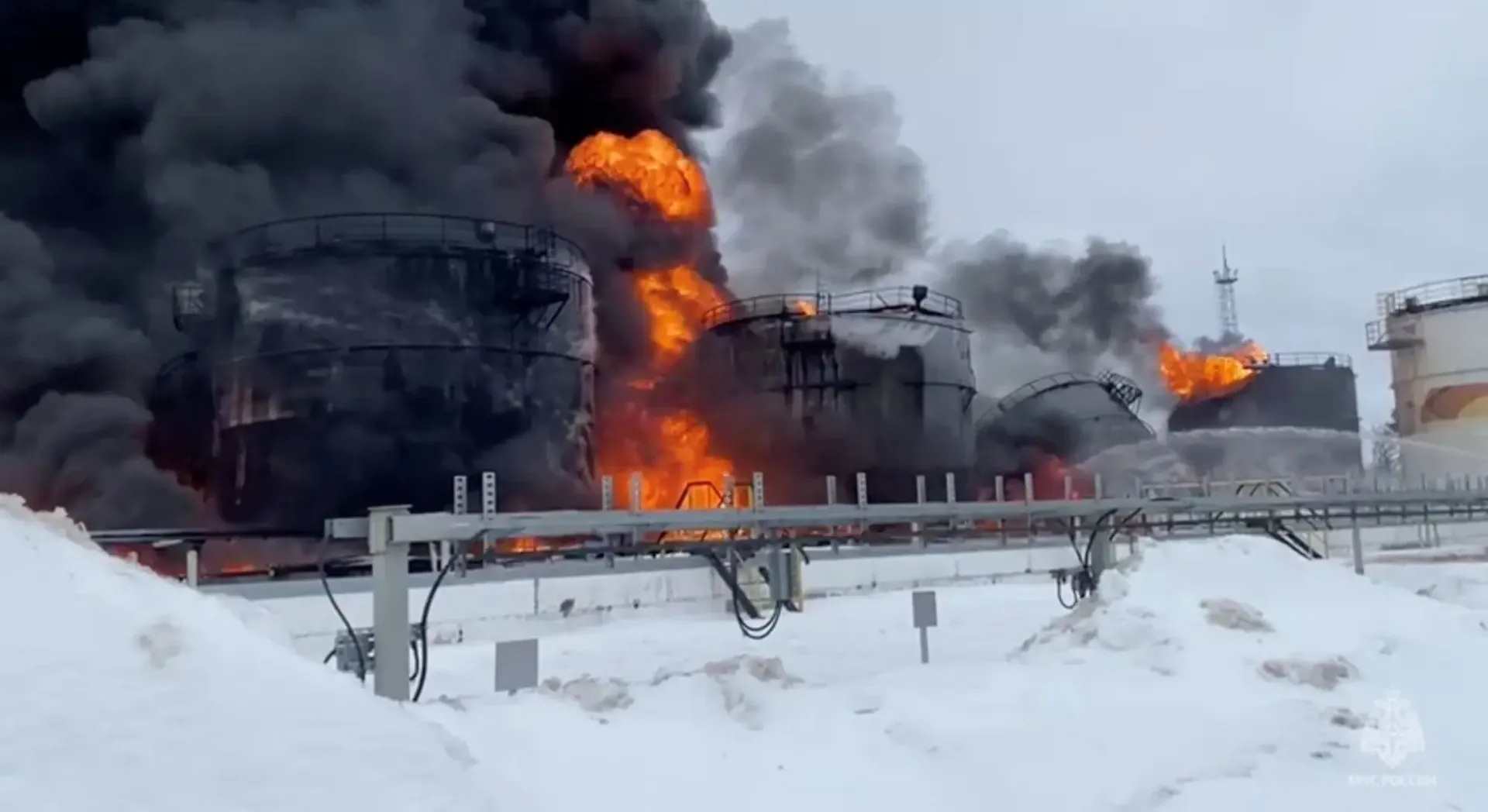- Category
- Latest news
Ukraine Is Actively Targeting Russian Oil Refineries. Why is This Important?

Ukraine’s strikes on Russia’s oil refineries were criticized by the US, claiming it would affect the global oil market, surging oil prices. But is it really the case?
Since October 2023, Ukraine has launched at least 20 drone attacks on Russia’s oil refineries.
On the night of May 9, Ukraine struck two oil depots on Russia’s territory, in the village of Yurivka near Anapa in the Krasnodar Region.
The same day, a Ukrainian long-range drone hit the Gazprom Neftekhim Salavat refinery in the Russian Republic of Bashkortostan. This drone set a historical record by covering a distance of 1500 km.
Ukraine’s officials state that targeting Russia’s refineries has the goal of cutting off fuel supplies to the Russian military and dropping Russia’s oil refinery revenues.
Using drones to strike Russia’s oil infrastructure is one of the available ways for Ukraine to weaken Russia while waiting for the allies' military aid.
US officials, including President Joe Biden, criticized Ukraine’s strikes on Russia’s oil refineries. “Attacks could have a knock-on effect in terms of the global energy situation,” said Secretary of Defense Lloyd Austin.
Foreign Affairs magazine analyzed the situation, concluding that US fears are mislaid since Ukraine is targeting oil refineries and not oil fields, thus not affecting Russia’s oil-extracting powers.
Ukraine hitting oil tanks makes Russia export more crude oil, which will eventually lead to a drop in global oil prices.
Recent months' data reveals expected tendencies, with Russia increasing its monthly crude oil exports by 9% from February to March, reaching their highest level in nine months. On the other hand, Russia’s exports of oil products have decreased from 844,000 tons of diesel and other petroleum products in the last week of April 2023 to 712,000 tons in the same week in 2024. The global prices for crude oil didn’t appear to increase following the strikes.
The strikes have led to a decrease in Russia’s diesel and gasoline production with diesel production falling by 16% and gasoline production falling by 9%, which consequently led to an increase in the wholesale prices of diesel and gasoline in western Russia by by 23% and 47%, respectively, between the end of 2023 and mid-March.
This data shows that Ukraine’s strategy is working, causing economic loss for the Kremlin. Ukraine’s strikes have achieved what Western sanctions failed to attain. It’s a low-risk strategy, as long as Ukraine avoids hitting crude oil pipelines or export sites.
Striking Russia’s refineries is Ukraine’s own endeavor, which doesn’t utilize any weapons provided by the West.
Employing measures to target an industry that directly bolsters Russian military capabilities is a rational strategy for Kyiv, used in the past by the United States itself, including in its campaigns against the Islamic State.
Ukraine’s strategy reveals a clear intent—disrupt Russia’s war machine by targeting its economic fuel source. While the global implications remain to be seen, the immediate economic strain on Russia is undeniable.
-f88628fa403b11af0b72ec7b062ce954.jpeg)



-111f0e5095e02c02446ffed57bfb0ab1.jpeg)

